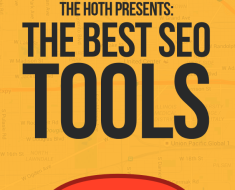The rise of mindfulness in the modern world
Hey, everybody – Our species has done it for every other demand. I toggle back and forth between extreme optimism and, you know, dystopian despair. Because on the one hand, you know, you described the experience of going to therapy and you know, how that was kind of, you know, novel at that time, but we’re not in that place anymore. And everybody’s got a smartphone and there’s, you know, headspace and calm and waking up and all these incredible apps and mindfulness is part of the mainstream modern vernacular. Like these kids are growing up, not only aware of these practices but amenable and you know, they’re, it’s being done in the households in which they’re being raised, which I find to be, you know, that’s an amazing thing. I think there is
a consciousness that is emerging out of these young people that hopefully, you know, we can rely on to solve some of these problems.
Can You Maximize Your Neuroplasticity?
And then, you know, I just think about the endless scrolling and the associated, you know, I’m just like, oh yes, we’re fucked. Well, I think it’s clear that most people, young or old, are content to be passive consumers and spend out their dopamine doing essentially meaningless activities, and consuming food, and consuming air and light that is basically damaging to themselves. And they, I don’t think they care. I think there are species let’s be fair, our species is- Non-essential. Well, no, no, I didn’t say that. our species, although sometimes I think it’d be interesting if some other species ran the earth but we’re the curators of the planet. So I think that our species is probably divided into those that are really going to try and maximize this gift of neuroplasticity, right? We’re the only species that has neuroplasticity throughout the lifespan and that neuroplasticity in childhood lasts as long as it does as a function of our total lifespan, it’s incredible.
Reward Systems that Attach to Healthy Behaviors Could Lead to a
So we were gifted this and I think some people leverage it and take advantage of it and other people don’t. And I think we need to accept that we’re not gonna get everybody, but what we need to do is attach the reward systems of society, financial, socio-economic, et cetera to the kinds of behaviors that are gonna give rise to people that can lead us into the next hundred years, 200 years. Now that is not saying, oh do away with monetary systems, actually the opposite.
How to Achieve High-Performance Levels
I think that once people start to realize that you’re high-performing military elite, military your high performing athlete, your high-performing academics, you’re high-performing business people, they actually have practices that they use to regulate themselves in order to not just perform better, but sleep better and not just to sleep better, but to listen better, not just listen better but incorporate ideas that allow them into states of creativity and states of mind that really lead to new and exciting ways that humans can interact. And many people will just be consumers of everything they produce. Well, all of the, what’s great about new media is that we’ve democratized access to this information. And we’re able to realize that these people are not just freaks of nature but that they have a methodology, and they’ve created this canon, this tool kit and these practices are available to everybody.
The Power of Psychology to Empower the Next Generation
And you have people like David who are explaining this in very plain terms, that it is within your power to take advantage of these things, to take better control of your life. And we’ve never seen anything like that before, in the history of humanity. And I think that that, you know, that bodes well for the empowerment of the next generation as well. I do too, I, as you can probably tell, I’m optimistic, I have to be because otherwise, I can’t justify the work that we’re doing but I think that there’s so much interest now in psychology and the brain and the self in physical fitness, which, you know, I think it’s fair to say is inextricably linked to mental fitness. And the fact that people are so curious about what other people are doing and what are the paths to success and you know, what are the resources for trauma and addiction? I think there’s been a kind of swarm of information.
Change Your Brain: The Power of Early Childhood Education
It’s been hard to sort through, but I think 2020 is our, you know, is our sort of call I keep calling it a call to arms, and I, ’cause I guess I do feel that way. It’s very serious, this is serious business and this is the time for us and the next generation to step up and, you know, and to lead people toward a place where we can function better and where the next generation will reflexively function better. That’s that beauty of early childhood is that if some of this stuff is taught and passed off, it’s not gonna be perfect, but there’ll be a generation of people coming up, that will naturally understand stress and agitation is taking them off their game and leading to bad decisions and will make the appropriate adjustments. And there are people that will that read David’s book and your book, and we’ll see the possibility of doing something different with a terrible childhood or a brutal addiction. And, you know, I think we need more stories of success.
The Importance of Dropkicking Your Brain
I think it’s easy to look out there and see all the things that are going wrong and we need to keep paying attention to those, but we need these beacons that draw people forward. And I say that from a place of experience, I mean, I used to have to find it in books on the bookshelf. I, there was no online back then or in mentors and you know, you have to forage, you know, I think kids, they have to have that foraging capacity. They can’t just sit there and wait for it to rain on them or for a parent to dump it on them. But I trust that they’re out there and that they’re gonna figure it out. Just like you’re doing on Instagram. You’re dropping these videos basically every day, right? Like more or less little lessons on neuroscience. I’m trying, I’m trying to show people that I have a kind of no-acronym rule. So I don’t like embedding things in a lot of complex languages.
Science Can Offer Solutions to Mental Health Issues
Sometimes I have to use an acronym, but yeah, teach people a little bit about how their brain works and how it interfaces with psychology. Everyone’s got different goals and purposes in the world but you know, that scientists are normal people and that hopefully, science has something, I think real science has something to offer, but it’s not gonna happen if I’m vaulted in my lab where my papers are read by the 12 people that care enough to read the papers start to finish. So I’m doing it, there are others out there. Of course, David St Clair is doing it, (indistinct) doing it. I’m trying to recruit more people from the scientific community to do this. I think it’s our responsibility. You paid for it, it’s your tax dollars. You know, there’s a tremendous cost to doing science that is not often discussed but I don’t really consider it an option. I consider it my obligation and I’m gonna keep going. Well, keep doing it, man. I appreciate the work that you’re doing. I think it’s really important to work.
How to Change Your Brain for Success
We need it now more than ever. And it’s cool that you’re getting out there and sharing your wisdom with everybody. It’s super empowering, so thanks, man. Appreciate it.Thank you. Really appreciate the chance to be here. If you’re digging into Andrew best way to find him is- Huberman Lab.Instagram.Yeah, Huberman Lab. Huberman Lab is cool. All right, man. Coming back, I made all these notes all this stuff I wanted to talk to you about. We got through like 10% of it, so come by and talk to me again. My apologies. I realize you’re pretty verbose. Yeah, I just was getting out of the way man, to, you know, listen to what you have to say. I appreciate it, thanks, man. Thank you.Peace…






